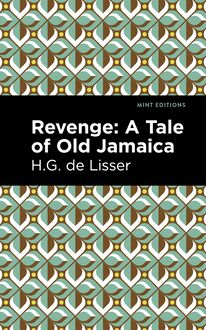-
 Univers
Univers
-
 Ebooks
Ebooks
-
 Livres audio
Livres audio
-
 Presse
Presse
-
 Podcasts
Podcasts
-
 BD
BD
-
 Documents
Documents
-
- Cours
- Révisions
- Ressources pédagogiques
- Sciences de l’éducation
- Manuels scolaires
- Langues
- Travaux de classe
- Annales de BEP
- Etudes supérieures
- Maternelle et primaire
- Fiches de lecture
- Orientation scolaire
- Méthodologie
- Corrigés de devoir
- Annales d’examens et concours
- Annales du bac
- Annales du brevet
- Rapports de stage
La lecture à portée de main
Vous pourrez modifier la taille du texte de cet ouvrage
Découvre YouScribe en t'inscrivant gratuitement
Je m'inscrisDécouvre YouScribe en t'inscrivant gratuitement
Je m'inscrisEn savoir plus
Vous pourrez modifier la taille du texte de cet ouvrage
En savoir plus

Description
The Life and Exploits of Three-Finger’d Jack (1801) is a book by William Burdett. Inspired by tales of legendary slave-turned-rebel Jack Mansong, as well as by a popular pantomime based on Jack’s life, Burdett published his book to popular acclaim in England. In late eighteenth-century Jamaica, a runaway slave named Jack “Three-Fingered Jack” Mansong defied British law to establish a community of runaways in the densely forested Blue Mountains of what is now Sant Thomas Parish. Because his actions violated a controversial treaty between the Jamaican Maroons and the colonial authority, Jack and his comrades faced persecution from both groups. Knowing that his only choice was between freedom or death, Jack fought valiantly to the bitter end. In Burdett’s version of events, Jack’s story begins in Africa, where he goes by the name Mansong. Stolen into slavery and taken to the Caribbean, the war hero prepares to make his break for the mountains. The Life and Exploits of Three-Finger’d Jack also features a romantic subplot between the planter’s daughter Rosa and Captain Orford, an Englishman newly arrived in Jamaica. With a beautifully designed cover and professionally typeset manuscript, this edition of William Burdett’s The Life and Exploits of Three-Finger’d Jack is a classic of British-Jamaican literature reimagined for modern readers.
Sujets
Informations
| Publié par | Mint Editions |
| Date de parution | 28 septembre 2021 |
| Nombre de lectures | 0 |
| EAN13 | 9781513210759 |
| Langue | English |
Informations légales : prix de location à la page 0,0300€. Cette information est donnée uniquement à titre indicatif conformément à la législation en vigueur.
Extrait
The Life and Exploits of Three-Finger’d Jack
The Terror of Jamaica
William Burdett
The Life and Exploits of Three-Finger’d Jack: The Terror of Jamaica was first published in 1801.
This edition published by Mint Editions 2021.
ISBN 9781513211954 | E-ISBN 9781513210759
Published by Mint Editions®
minteditionbooks.com
Publishing Director: Jennifer Newens
Design & Production: Rachel Lopez Metzger
Project Manager: Micaela Clark
Typesetting: Westchester Publishing Services
C ONTENTS B EGIN R EADING C HARACTERS S CENE —T HE I SLAND OF J AMAICA
This daring marauder, whose real name was M ANSONG , and who, for a considerable time, kept all Jamaica in awe, was of a bold and martial appearance; he was above the common stature, and his limbs well shapen and athletic; his face was rather long; his eyes keen and penetrating; his nose was not like the generality of blacks, squat and flat, but rather aqueline; and his skin remarkably clear. His countenance was very expressive; and even a look of reproach from him would frequently make the overseers of the plantation tremble, as they smote him for neglect of duty; while the steadiness of his manners, and firm intrepidity of his mind, commanded the reverence of those who, like him, wielded the servile spade.
Onowauhee, the father of our hero, dwelt at Simbing, in the interior of Africa, adjoining the country of the Moors. Simbing is scarcely a day’s journey from Jarra, a large Moorish town, situated at the bottom of some rocky hills. He was in the decline of years; and his cattle were frequently stolen by the Moorish robbers, who came in large parties, and plundered the peaceful inhabitants.
Mansong was now grown to manhood, and took upon himself the protection of his father’s property. One day, a large party of the Moors came down, and drove before them the finest from amongst the herds. The people stood affrighted at the doors of their huts; but Mansong lifted high his javelin, and struck to the heart the leader of the robbers, who fell dead upon the plain. The Moors were determined to resent this outrage, as they termed it, and sent back the javelin; the aim was good; and Mansong fell to the ground, bathed in his blood. The inhabitants set up a loud scream, and the Moors drove off with their booty. Mansong was borne to his father’s hut upon the shoulders of his countrymen. When they had laid him upon a mat, all the spectators joined in lamenting his fate, by screaming and howling in the most piteous manner. Onowauhee tore his hair, in the bitterness of grief; and casting himself on the body of his son, he expired in sight of the bewildered spectators!
Mansong was not, however, deprived of life.—The javelin had pierced his breast, and a great effusion of blood succeeded. This occasioned a fainting-fit, from which he shortly recovered. The astonished people made frantic gestures, in token of their joy; and being of the Mahometan persuasion, exclaimed, “La illah el ellah Mahamet rasowl allahi.” —“There is but one God, and Mahomet is his prophet.”
They administered some refreshment to Mansong, carefully concealing from him the death of his father; he soon fell into a refreshing sleep, and they withdrew. The body of Onowauhee was now borne away, and deposited in a place of worship, dedicated to Mahomet, where it was watched for three days by those unenlightened people, thinking their good prophet would restore him to life again; but in this they were disappointed; and on the fourth day he was buried.
Mansong was now perfectly recovered, and determined to revenge the death of his father, whom he for a long time bewailed in the bitterness of filial grief. He collected his countrymen, and exhorted them to rush upon the Moors, and repair the losses they daily sustained; but the people of Simbing loved peace, and could not then be prevailed upon.
The fiery soul of Mansong was not defeated by a cool refusal. Another opportunity soon presented itself; he again pictured to them the horrors and calamities they were daily exposed to, and again exhorted them to revenge. The youths now complied; and Mansong led them to join the King of Kaarta, who was just then waging war with the perfidious King of Bambarra. This King beheld with a jealous eye the growing prosperity of the King of Kaarta, and availed himself of the following trifling opportunity to declare hostilities against that country.
The Moorish robbers, who as frequently made incursions into Bambarra as Kaarta, had stolen from the former an immense drove of their finest cattle, which they fold to a Dooty, or chief man of a town, in Kaarta. The people of Bambarra gaining a knowledge of their cattle, claimed them of the Dooty, who refused to restore them; upon which, they complained to their King. Glad of the opportunity, he sent a messenger, escorted by a party of horsemen, to Daisy, King of Kaarta, to inform him that the King of Bambarra, with nine thousand men, would visit Kemmoo, the chief town, in the dry season; and to desire that Daisy would direct his slaves to sweep the houses, and have everything ready for their accommodation. The messenger concluded this insulting notification, by presenting the King with a pair of iron sandals, at the same time adding, that “until such time as Daisy had worn out those sandals in his flight, he should never be secure from the arrows of Bambarra .”
Daisy, after having consulted with his chief men about the best means of repelling so formidable an enemy, returned an answer of defiance; and caused to be written, in Arabic, upon a piece of thin board, a proclamation, which was suspended to a tree in the public square; and a number of aged men were sent to different places to explain it to the common people. It called upon all the friends of Daisy to join him immediately; but to such as had no arms, or were afraid to enter into the war, permission was given to retire into any of the neighbouring kingdoms; and it was added, that provided they observed a strict neutrality, they should always be welcome to return to their former habitations; if, however, they took any active part against Kaarta, they had then “broken the key of their hut, and could never again enter the door.” Such was the expression. This proclamation was generally applauded; but many of the Kaartans, and, amongst others, the powerful tribes of Joover and Kakaro, availing themselves of the indulgent clause, retired from Daisy’s dominions, and took refuge in Ludamar and Rasson.
By means of these desertions, Daisy’s army was not so numerous as might have been expected; and when encamped at Kemmoo, the whole number of effective men did not exceed four thousand; but they were men of spirit and enterprize, and could be depended on.
M ANSONG , with his small troop from Simbing, had joined them; and their appearance was joyful to the heart of Daisey. Mansong had tutored his adventurous heroes in the art of war; had taught them evolutions which the King of Kaarta was unacquainted with; and he embraced, with all the fervor of his heart, so powerful an ally. He also undertook to discipline the men of Kaarta, and was unanimously chosen commander in chief.
Daisy now defied the malice of the powerful King of Bambarra, placing confidence in the valour of those few troops that were scarcely one-fourth the number of his foes, who now appeared before the town of Kemmoo. Mansong led his men to the field. The Kaartans became faint at heart when they beheld the numbers that were opposed to them; but their leader encouraged them by example; and the slaughter commenced!—The Bambarrans were mown down like blades of grass: but their numbers were great; and as often as a chasm was effected, it was filled by fresh troops. They visibly gained ground; and at length the men of Kaarta fled, with great slaughter.
Mansong now, with a corps of reserve, rushed upon the foe, and bore down all before his conquering arm. This encouraged the troops of Kaarta, who again appeared in the field, aiding those of Simbing, headed by the victorious Mansong, who fought like a tyger. His valour inspired his own men with courage; struck terror to the hearts of his foe; and he came off victorious!
When he returned from the fight, Daisy, with tears of gratitude, embraced him, and hailed him as a son. The Bambarrans retreated from Kemmoo, but in three days again appeared before the walls with redoubled force. Mansong knew it would be madness to resist them now, and therefore retreated to Joko , a town to the north-west of Kemmoo, whither he was followed by the King of Bambarra ; he then, with his small troop, took refuge in a strong town called Gedingooma, situated in a hilly country, and surrounded with high stone-walls.
When Daisy, by command of Mansong , departed from Joko , his sons refused to accompany him; alledging, that “the singing-men would publish their disgrace, as soon as it should be known that he and his family had fled from Joko without firing a gun.” They were therefore left behind, with a number of horsemen, to defend Joko ; but, after many skirmishes, they were totally defeated, and one of Daisy’s sons taken prisoner. The remainder fled to Gedingooma, which Mansong had fortified and stored with provisions, and where he determined to make his final stand.—The King of Bambarra finding that Daisy wished to avoid a pitched battle, placed a strong force at Joko , to watch his motions; and separating the remainder of his army into small detachments, ordered them to over-run the country, and seize the inhabitants before they had time to escape. These orders were executed with such promptitude, that in a few days they were scattered over the whole kingdom of Kaarta.
These proceedings were according to the wish of Mansong, who had prepared troops in private for their reception, and sent others to the kingdom of Bambaara, which, in a short time, became a scene of desolation; for the King having left it in an unguarded st
-
 Univers
Univers
-
 Ebooks
Ebooks
-
 Livres audio
Livres audio
-
 Presse
Presse
-
 Podcasts
Podcasts
-
 BD
BD
-
 Documents
Documents
-
Jeunesse
-
Littérature
-
Ressources professionnelles
-
Santé et bien-être
-
Savoirs
-
Education
-
Loisirs et hobbies
-
Art, musique et cinéma
-
Actualité et débat de société
-
Jeunesse
-
Littérature
-
Ressources professionnelles
-
Santé et bien-être
-
Savoirs
-
Education
-
Loisirs et hobbies
-
Art, musique et cinéma
-
Actualité et débat de société
-
Actualités
-
Lifestyle
-
Presse jeunesse
-
Presse professionnelle
-
Pratique
-
Presse sportive
-
Presse internationale
-
Culture & Médias
-
Action et Aventures
-
Science-fiction et Fantasy
-
Société
-
Jeunesse
-
Littérature
-
Ressources professionnelles
-
Santé et bien-être
-
Savoirs
-
Education
-
Loisirs et hobbies
-
Art, musique et cinéma
-
Actualité et débat de société
- Cours
- Révisions
- Ressources pédagogiques
- Sciences de l’éducation
- Manuels scolaires
- Langues
- Travaux de classe
- Annales de BEP
- Etudes supérieures
- Maternelle et primaire
- Fiches de lecture
- Orientation scolaire
- Méthodologie
- Corrigés de devoir
- Annales d’examens et concours
- Annales du bac
- Annales du brevet
- Rapports de stage















